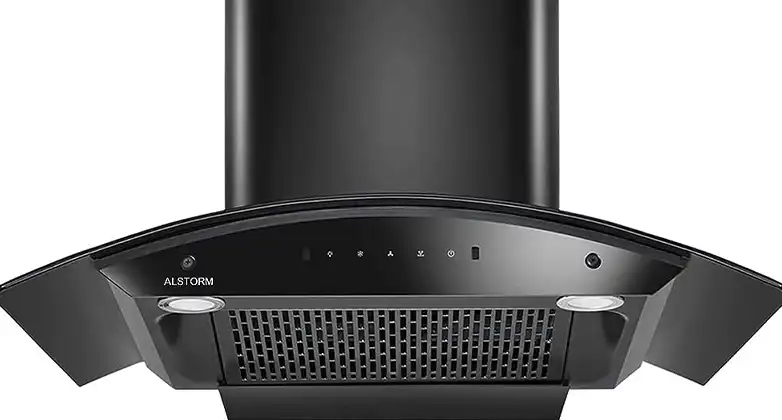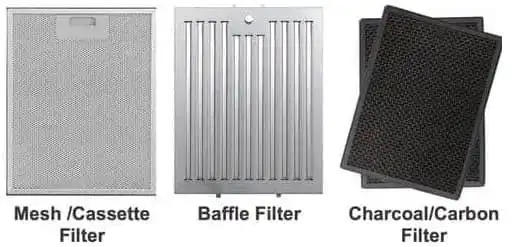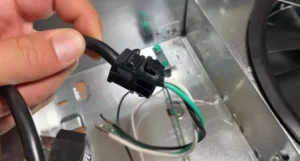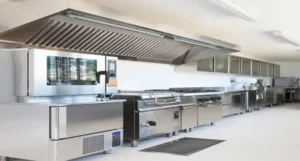Kitchen chimneys are essential for any household. Especially if you do a lot of cooking, baking, and roasting. It helps vent out all the fumes, grease, and smell out of the house and not give it time to work as a deodorant.
And from all the chimney brands and manufacturers out there, you come to one confusion. Filter or filterless? Which kitsch chimney is better, filter or filterless?
Well, there are benefits for both of the chimneys and downsides as well. And today we are going to let you know which one you should get.

Filter Or Filterless Kitchen Chimney | Which One Is The Best
You need a kitchen chimney, regardless of its filter and filterless feature. Back in the day, people used just fireplace chimneys, so that the cooking fumes and smoke could get out of the home. It wasn’t as effective as a motorized vent chimney like today, but it did the work.
We will go with each of the types of chimneys and then move on to our verdict and let you choose the ultimate one.
(A) Kitchen Chimney With Filters
A kitchen chimney with filters would come with an extra layer of protection before the fume, grease, smoke, and other elements reach the outside. Why? Because the vent motor matters.
The venting fan and motors are the most vital part of a modern chimney. They extract all of the unwanted smoke and fumes out of your cooking station and appliances. Hence, they get drenched in it in the process.
What a filter in between does is trap all the grease, smoke, and oil particles that are in the air, keeping the fan blades and motor safe from getting all clogged up. You can take the filter off and clean it every now and then. Also, you get to choose from mesh, metal, and activated carbon filters. You just have to clean them every 2 months or so, and a lot of them are dishwasher-friendly.
Here are the pros and cons of a filter chimney.

Pros:
- Effective against oil and grease helping the motor and fan to not clog up.
- Better air circulation as the motor and fans have an extra layer of protection.
- Reduces the amount of smoke and odor inside the kitchen better.
Cons:
- A bit pricey to maintain.
- Without proper cleaning, the chimney function drops down drastically.
(B) Filterless Kitchen Chimney
And there is the filterless kind that has no barrier between the fan and the motor. It’s as effective as a filter chimney but more efficient. As there is no filter to clean, you don’t have to worry about any noise or anything. And the occasional cleaning can also go out the window.
But what it lacks is the trapping of grease and oil that gets dragged into the blower fan and motor. Which in time will will clog it up. And a filter also helps remove the odor and smoke more effectively than a filterless chimney.
Here are the pros and cons of a filterless chimney.
Pros:
- Easy to clean and maintain.
- Less expensive so stays within budget.
Cons:
- Less effective in removing odor and smoke.
- Gets the motor and blower clogged up fast as there is no barrier or filter to block them.
Which One To Get? Filter Or Filterless Kitchen Chimney?
Both the filter and filterless chimneys are great from their point of effectiveness. While the filter version does cost more, it does remove odors and smoke more efficiently. Also, it blocks the grease and oil from reaching the blower blades and motor, which is also a plus. So if you are a frequent heavy cook, you should go with the filter.
For occasional cooking, people can go for the filterless kitchen chimney. It is effective, and efficient and won’t require any change of filters or cleaning. But if we were you, we would go for the filter ones, and get some metal filters for easy cleaning.
Frequently Asked Questions and Answers – FAQs
Which type of kitchen chimney is better?
Filter kitchen chimney is better in terms of performance and longevity. But for noncookers who don’t frequent the kitchen stove with heavy dishes, a filterless chimney can be a great option.
Which chimney is better autoclean or manual?
Autoclean chimneys have extra blower power that removes all grease and oil from the inside. This makes it a better performer than a manual chimney.
What are the disadvantages of auto clean chimneys?
The only disadvantage of an auto-clean chimney is that it is expensive. With all its power, sensors, and effective auto-clean function, it is quite understandable.
Conclusion
The need for a filter and filterless chimney comes down to a few facts. Are you a frequent cook? Do you deal with a lot of smoke and odor? Is there a lot of grease and oil involved? If the answer is yes, then filter chimneys are for you. An occasional scrambled egg toast or pancake doesn’t require a filter chimney, and a filterless will do just fine.



